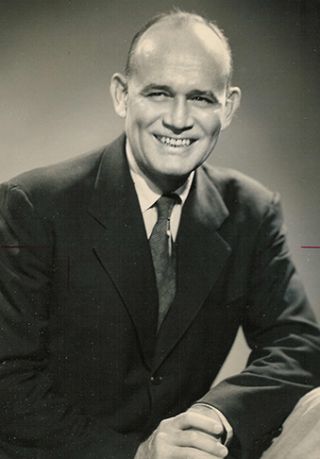Psychopathy
Why Do Psychopaths Crave Power?
Hyper-disconnected people desire power because of their sense of lack.
Updated October 25, 2023 Reviewed by Ray Parker
Key points
- People with psychopathic traits are “hyper-disconnected” with no emotional or empathic connection to others.
- Hyper-disconnected people usually feel a strong desire for power and wealth, which is never satiated.
- The need to accumulate is rooted in their profound disconnection from the world and other human beings.

The first major investigator of the “psychopathic” personality was the psychologist Hervey Cleckley, who published The Mask of Sanity in 1941.
Cleckley’s findings are still valid now. They became the basis of the well-known “Psychopath Test” by Canadian psychologist Robert Hare.
Cleckley described psychopaths as efficient, emotionless machines who can’t form intimate relationships and cannot love anyone (apart from themselves).
Their relationships are usually based on manipulation and exploitation rather than healthy human emotions like respect, trust, or love. Despite their deep abnormality, psychopaths generally masquerade as normal people, adopting conventional behavior and manipulating others with their charm and charisma.
However, my preferred approach is to set aside labels like psychopathy (and other related conditions such as narcissistic personality disorder) and refer more generally to “hyper-disconnected” people. This is the approach I use in my book DisConnected, which suggests that connection is an essential human trait and examines the chaos that hyper-disconnected people produce.1
Their extreme disconnection is the primary characteristic—and the essential pathology—of both psychopaths and narcissists. This gives rise to secondary characteristics such as a lack of empathy and emotion, self-centredness, and inability to form authentic relationships.
The Need for Power and Wealth
One major characteristic of hyper-disconnected people—or psychopaths, if you prefer—is their compulsive need for power, wealth, and success. This is also a major reason why they are so dangerous and destructive. Once they attain positions of power, either in business or politics, they use their power in a malevolent way, inflicting massive amounts of suffering on ordinary people.
Hyper-disconnected people’s lives are dominated by their need to accumulate. They feel a constant need to add more to their lives. On the most basic level, this might mean more material possessions: more money, jewelry, cars, or clothes. It might mean more achievements, success, fame, higher social or professional status, or romantic conquests.
On a more everyday level, it might mean a constant demand for attention and deference from colleagues and peers, alongside a need always to be the center of attention. For hyper-disconnected business tycoons or CEOs, the need to accumulate might mean acquiring more companies or properties. For hyper-disconnected political leaders, it might mean more national prestige and territory or more personal power, leading to a fascist dictatorship.
The struggle to accumulate never ceases; it is never satiated. This is another of the hallmarks of hyper-disconnected people: They are never satisfied. No matter how much power or wealth they gain, it is never enough.
Even if they were on the front page of every newspaper worldwide, it wouldn’t be enough attention. It wouldn't be enough property even if they owned every building or company on the planet's surface.
But none of their achievement or accumulation brings them any contentment. The only happiness they ever experience is a short-term pleasure. It is often the egotistical thrill of defeating, humiliating, or hurting others. Otherwise, they live in a perpetual state of restless discontent.
Hyper-Disconnected People's Strong Impulse to Accumulate
Because they are so disconnected from the world and other human beings, hyper-disconnected people experience a powerful sense of lack. Subconsciously, even if they project an image of confidence and self-sufficiency, they feel incomplete, like fragments broken from the whole. As a result, they hanker after power, status, and wealth to complete themselves and compensate for their restless discontent.
The strength of our need to accumulate correlates with our degree of disconnection. This means that, at least to some extent, you can judge how disconnected a person is in terms of their impulse to accumulate.
When a person devotes their whole life to accumulating more property, possessions, and wealth and becoming more dominant, respected, or famous, it is a sure sign that they live in an extreme state of disconnection.
Conversely, people who feel strongly connected to others and the world generally have little desire for power and wealth.
In a way, this is unfortunate because it would be fantastic if connected people were in positions of power. Related people make ideal leaders with their sense of empathy and responsibility and strong moral principles.
However, since they often don’t put themselves forward for positions of power, this leaves positions free for hyper-disconnected people. This helps to explain why the world is so full of corruption, injustice, and oppression.
(Adapted from DisConnected by Steve Taylor)
References




